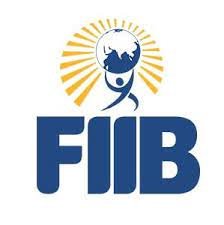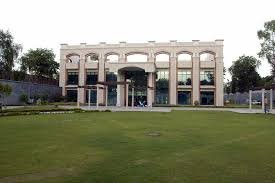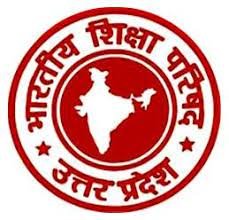About the Course
In India, a Diploma in Financial Management is a professional
course that equips individuals with the necessary skills and knowledge to
effectively manage financial resources in various organizations. This diploma
program focuses on providing a comprehensive understanding of financial
principles, techniques, and practices. The curriculum of the Diploma in
Financial Management covers a wide range of topics related to finance and
accounting. Students learn about financial analysis, financial planning,
investment management, risk assessment, and budgeting. They also gain insights
into financial markets, banking operations, taxation, and regulatory
frameworks.
The duration of the diploma program typically ranges from one to two
years, depending on the institute offering the course. It can be pursued by individuals
from diverse educational backgrounds, including commerce, business
administration, economics, or even non-finance fields, as long as they meet the
eligibility criteria set by the respective institution. During the course,
students are exposed to practical case studies, workshops, and industry
interactions, which help them develop analytical and problem-solving skills.
They learn to apply financial tools and techniques to real-world scenarios,
enabling them to make informed decisions and manage financial risks
effectively.
Obtaining a Diploma in Financial Management in India opens up
various career opportunities in both public and private sectors. Graduates can
work as financial analysts, investment bankers, financial consultants, budget
analysts, or financial managers in corporate organizations, banks, financial
institutions, or consulting firms. They can also pursue careers in insurance,
mutual funds, stockbroking, or venture capital firms.
Furthermore, some individuals may choose to pursue higher studies in
finance or related fields, such as an MBA in Finance or a Master's in Financial
Management, to enhance their knowledge and career prospects.
In conclusion, a Diploma in Financial Management in India
provides individuals with a solid foundation in finance and equips them with
the necessary skills to excel in the dynamic field of financial management. It
offers a pathway to a rewarding career in various sectors and serves as a
stepping stone for further professional growth and specialization in the
finance domain.
Overview of the Course
| Particulars | Value |
| Name of the Course | Diploma in Financial Management |
| Level of the Course | Diploma |
| Duration of the Course | 1 year |
| Mode of Course | Full-time, Part-time |
| Eligibility Criteria | Varies by institution; typically 10+2 or equivalent |
| Admission Process | Entrance exam, merit-based selection |
| Age Limit | Varies by institution; generally no specific age limit |
| Focus | Financial principles, techniques, and practices |
| Average Annual Fees | Varies by the institution; approximately INR 20,000 - INR 1,00,000 |
| Average Annual Salary | Varies based on job role and experience; approximately INR 3,00,000 - INR 8,00,000 |
| Employment Areas | Corporate organizations, banks, financial institutions, consulting firms, insurance companies, mutual funds, stockbroking firms, venture capital firms |
| Job Roles | Financial Analyst, Investment Banker, Financial Consultant, Budget Analyst, Financial Manager, etc. |
| Top Recruiters | Banks (e.g., HDFC Bank, ICICI Bank), Financial Institutions (e.g., Bajaj Finserv, Reliance Capital), Consulting Firms (e.g., Deloitte, PwC), Insurance Companies (e.g., LIC, Bajaj Allianz), Mutual Funds (e.g., SBI Mutual Fund, HDFC Mutual Fund) |
Why a diploma in financial management?
There are several reasons why pursuing a Diploma in Financial Management
can be beneficial. Here are a few key reasons:
(1). Practical Skills
A Diploma in Financial Management provides practical skills and
knowledge that are directly applicable to the finance industry. The program
covers essential topics such as financial analysis, investment management,
budgeting, and risk assessment, which are crucial in managing financial
resources effectively.
(2). Career Opportunities
The finance sector offers a wide range of career opportunities. By
obtaining a diploma in financial management, you can enhance your employability
and access various job roles in corporate organizations, banks, financial
institutions, consulting firms, insurance companies, and more. The skills
gained through the program make you a valuable asset in the finance industry.
(3). Versatility
Financial management skills are in demand across industries. Whether
it's a manufacturing company, service sector, or non-profit organization, all
entities require effective financial management. With a diploma in financial
management, you can work in diverse sectors, making your skill set versatile
and transferable.
(4). Quick Entry into the Workforce
Compared to a degree program, a diploma in financial management
typically has a shorter duration. This allows you to enter the workforce
relatively quickly and start building your career in finance. It can be a
suitable option if you're looking for a faster route to gain practical skills
and start working sooner.
(5). Foundation for Further Studies
A diploma in financial management can also serve as a foundation for
further studies. If you have plans to pursue higher education, such as an MBA
in Finance or a master's degree in a related field, the diploma program
provides you with a strong base of financial knowledge and skills to succeed in
advanced studies.
(6). Personal Finance Management
Besides career benefits, a diploma in financial management equips you
with essential skills for personal finance management. You can apply the
principles and techniques you learn to manage your finances effectively, make
informed investment decisions, and plan for a secure financial future.
Overall, a diploma in financial management offers a practical and
focused education in finance, opening up opportunities for a rewarding career
in various industries while providing you with valuable skills for personal
financial management.
Eligibility Criteria
The eligibility criteria for a Diploma in Financial Management
can vary depending on the institution offering the program. However, some
common eligibility requirements include:
(1). Educational Qualification: Generally, candidates should have
completed their 10+2 or equivalent examination from a recognized board or
institution. They should have a solid foundation in subjects like mathematics,
economics, and accounting.
(2). Minimum Marks: Some institutions may have minimum percentage
criteria for admission, such as 50% or above in the qualifying examination.
(3). Age Limit: There is usually no specific age limit for admission to
a Diploma in Financial Management. However, candidates are required to meet the
age requirements set by the institution.
Admission Process
The admission process for a Diploma in Financial Management typically
involves the following steps:
(1). Some institutions may conduct an entrance examination to assess the
candidate's aptitude and knowledge in areas related to finance and management.
The exam may include multiple-choice questions, quantitative aptitude, logical
reasoning, and general awareness.
(2). In some cases, admission is based on merit, considering the
candidate's academic performance in the qualifying examination. The institution
may have a cut-off percentage, and candidates meeting the criteria are selected
for admission.
(3). Candidates who clear the entrance exam or meet the merit-based
selection criteria may be called for a personal interview. The interview helps
the institution assess the candidate's communication skills, motivation, and
suitability for the program.
Selection Process
The selection process for a Diploma in Financial Management involves
evaluating candidates based on their performance in the entrance exam, academic
qualifications, and personal interviews. The specific selection process may
vary from institution to institution.
(1). Entrance Exam Score: The marks obtained by the candidate in the
entrance exam play a significant role in the selection process. Higher scores
increase the chances of being shortlisted for admission.
(2). Academic Qualifications: The candidate's academic performance,
particularly in subjects related to finance, mathematics, and economics, is
considered during the selection process. Higher grades or percentages in the
qualifying examination may enhance the chances of selection.
(3). Personal Interview: The personal interview provides an opportunity
for the institution to assess the candidate's interpersonal skills,
communication abilities, motivation, and suitability for the program. The
interview panel may consist of faculty members and industry experts.
(4). Final Merit List: After considering the entrance exam scores,
academic qualifications, and personal interview performance, the institution
prepares a final merit list. Candidates with the highest scores and suitable
qualities are offered admission to the Diploma in Financial Management program.
Types of Courses
In India, the Diploma in Financial Management is offered in various
course modes to accommodate the diverse needs of students. Here are the common
types of course modes available for pursuing a diploma in financial management:
(1). Full-Time Mode
Full-time mode refers to a regular diploma program where students attend
classes on a full-time basis. This mode requires students to dedicate their
time exclusively to their studies. Full-time diploma programs typically have a
fixed schedule of classes, lectures, practical sessions, and assignments
conducted on-campus or at designated study centers.
(2). Part-Time Mode
Part-time mode allows students to pursue a diploma in financial
management while also fulfilling other commitments, such as work or personal
responsibilities. In this mode, classes are scheduled in the evenings, on
weekends, or during non-working hours, providing flexibility for working
professionals or individuals who cannot commit to a full-time program. The
duration of the course may be longer compared to full-time programs.
(3). Distance Learning Mode
Distance learning mode, also known as correspondence or online mode,
enables students to study at their own pace and from their preferred location.
The course materials, study resources, and assignments are provided through
online platforms, mail, or a combination of both. This mode is suitable for
individuals who require flexibility in their learning schedule or cannot
physically attend classes regularly. Some institutions may also offer online
classes or video lectures as part of the distance learning program.
(4). Blended Learning Mode
The blended learning mode combines elements of both traditional classroom
learning and online learning. In this mode, students attend some classes on
campus or at designated study centers while utilizing online resources and
platforms for self-study, assignments, and discussions. Blended learning allows
for a balance between face-to-face interactions and the convenience of online
learning, providing students with a mix of structured guidance and flexibility.
Accepted Entrance for diploma in financial management
The entrance exams accepted for admission to a Diploma in Financial
Management can vary depending on the institution offering the program. Some
institutions may have their entrance exams specifically designed for the
diploma course, while others may consider scores from national or state-level
entrance exams. Here are some common entrance exams that are often accepted for
admission to a diploma in financial management in India:
| Entrance Exams | Accepted for Diploma in Financial Management |
| Common Entrance Test (CET) | Maharashtra CET, Karnataka CET, Delhi CET, etc. |
| Institute-specific Entrance Exams | Institution-specific exams |
| Management Aptitude Test (MAT) | Accepted by some institutions |
| State-level Entrance Exams | TANCET, UPSEE, etc. |
Skills Required
Here are some key skills required for a Diploma in Financial Management:
| Financial Analysis | Critical Thinking | Communication Skills |
| Investment Management | Problem-solving | Teamwork |
| Budgeting | Data Interpretation | Time Management |
| Risk Assessment | Numerical Aptitude | Adaptability |
| Taxation Knowledge | Attention to Detail | Leadership Skills |
| Financial Planning | Logical Reasoning | Interpersonal Skills |
| Knowledge of Financial Tools | Decision-making | Networking |
| Accounting Principles | Research Skills | Presentation Skills |
| Familiarity with Financial Markets | Data Analysis | Stress Management |
| Banking Operations | Forecasting | Professional Ethics |
Comparison
Here's a comparison between a Diploma in Financial Management and a Bachelor
of Commerce (B.Com):
| Name of the Course | Diploma in Financial Management | Bachelor of Commerce (B.Com) |
| Overview of the Course | Provides skills in financial management and analysis | Covers various aspects of commerce and business |
| Level of the Course | Diploma | Undergraduate degree |
| Duration of the Course | 1-2 years | 3 years |
| Mode, of Course, | Full-time, Part-time, Distance Learning, Blended Learning | Full-time, Part-time, Distance Learning |
| Eligibility Criteria | 10+2 or equivalent | 10+2 or equivalent |
| Admission Process | Entrance exam, merit-based selection | Merit-based selection, entrance exam (in some cases) |
| Age Limit | Varies by institution; generally no specific age limit | Varies by institution; generally no specific age limit |
| Focus | Financial management and analysis | Commerce, business, and related subjects |
| Average Annual Fees | Varies by the institution; approximately INR 20,000 - INR 1,00,000 | Varies by institution |
| Average Annual Salary | Approximately INR 3,00,000 - INR 8,00,000 | Approximately INR 2,00,000 - INR 6,00,000 |
| Employment Areas | Corporate organizations, banks, financial institutions, consulting firms, insurance companies, mutual funds, stockbroking firms, venture capital firms | Wide range of industries and sectors |
| Job Roles | Financial Analyst, Investment Banker, Financial Consultant, Budget Analyst, Financial Manager, etc. | Accountant, Financial Analyst, Tax Consultant, Auditor, Banking Professional, etc. |
| Top Recruiters | Banks, Financial Institutions, Consulting Firms, Insurance Companies, Mutual Funds | Corporate Organizations, Banks, Financial Institutions, Consultancies, Government Agencies, etc. |
Top Colleges and Fees Structure
| College Name | Location | Fees (Approx.) |
| National Institute of Financial Management | Delhi | INR 1,50,000 - INR 2,00,000 |
| Indian Institute of Finance (IIF) | Greater Noida, Uttar Pradesh | INR 1,50,000 - INR 2,00,000 |
| National Institute of Securities Markets (NISM) | Mumbai, Maharashtra | INR 75,000 - INR 1,00,000 |
| NMIMS Global Access School for Continuing Education (NGA-SCE) | Mumbai, Maharashtra | INR 70,000 - INR 1,00,000 |
| Symbiosis Centre for Distance Learning (SCDL) | Pune, Maharashtra | INR 50,000 - INR 75,000 |
Job and Placements
Job and placement opportunities for individuals with a diploma in
financial management are diverse and promising. Graduates with this
qualification can explore various career paths in the finance industry. They
can seek employment in corporate organizations, banks, financial institutions,
consulting firms, insurance companies, mutual funds, stockbroking firms,
venture capital firms, and more. Job roles such as financial analyst,
investment banker, financial consultant, budget analyst, and financial manager
are common in this field.
With their skills in financial analysis, investment management,
budgeting, and risk assessment, individuals can contribute to financial
decision-making, strategic planning, and ensuring the financial health of
organizations. The average annual salary for professionals in this field can
range from approximately INR 3,00,000 to INR 8,00,000, depending on factors
such as experience, job role, and the organization's scale. Placement support
and assistance may be provided by educational institutions or through industry
connections and networks, facilitating students' transition into the workforce.
It is worth noting that the specific job opportunities and placements can vary based
on individual capabilities, market conditions, and the geographical location of
the graduates. Continuous professional development and keeping abreast of
industry trends can enhance career growth and further opportunities for
advancement in the field of financial management.
Job Role and Average Annual Salary
Here's the job role description and average annual salary for various
positions in the field of financial management:
| Job Role | Description | Average Annual Salary (Approx.) |
| Financial Analyst | Analyzes financial data, prepares reports, forecasts financial performance, assists in investment decisions, and provides financial insights. | INR 3,00,000 - INR 6,00,000 |
| Investment Banker | Facilitates corporate finance activities, advises on mergers and acquisitions, manages IPOs, and offers financial advisory services. | INR 6,00,000 - INR 12,00,000 |
| Financial Consultant | Provides expert advice on financial planning, investment strategies, tax planning, and wealth management to individuals and businesses. | INR 4,00,000 - INR 8,00,000 |
| Budget Analyst | Develops, monitors, and analyzes budgets, prepares financial forecasts, identifies cost-saving opportunities, and assists in financial planning. | INR 3,50,000 - INR 6,00,000 |
| Financial Manager | Oversees financial operations, prepares financial statements, manages cash flow, develops financial strategies, and ensures regulatory compliance. | INR 6,00,000 - INR 12,00,000 |
| Risk Manager | Identifies and assesses financial risks, develops risk mitigation strategies, implements risk management policies, and monitors risk exposure. | INR 4,00,000 - INR 9,00,000 |
| Tax Consultant | Provides expert advice on tax planning, tax compliance, and tax optimization strategies for individuals and businesses. | INR 4,00,000 - INR 8,00,000 |
| Auditor | Conducts financial audits, examines financial records, verifies compliance with regulations, and assesses internal controls and risk management. | INR 3,50,000 - INR 7,00,000 |
| Banking Professional | Handles banking operations, manages customer accounts, processes financial transactions, and provides customer service in a banking environment. | INR 3,00,000 - INR 6,00,000 |
Employment Areas and Top Recruiters
Here are the employment areas and top recruiters in the field of
financial management presented in a table format:
| Employment Areas | Top Recruiters |
| Corporate Organizations | Tata Consultancy Services (TCS), Accenture, Infosys, IBM, Wipro, Deloitte, PwC, Ernst & Young, KPMG |
| Banks | HDFC Bank, ICICI Bank, State Bank of India (SBI), Axis Bank, Kotak Mahindra Bank, Bank of Baroda |
| Financial Institutions | Bajaj Finance, IDFC First Bank, LIC Housing Finance, HDFC Ltd, Aditya Birla Capital, Edelweiss |
| Consulting Firms | McKinsey & Company, Boston Consulting Group (BCG), Bain & Company, Deloitte, Accenture |
| Insurance Companies | Life Insurance Corporation (LIC), ICICI Prudential Life Insurance, HDFC Life, Max Life Insurance |
| Mutual Funds | HDFC Mutual Fund, Aditya Birla Sun Life Mutual Fund, SBI Mutual Fund, Reliance Mutual Fund |
| Stockbroking Firms | Kotak Securities, ICICI Direct, Angel Broking, Sharekhan, Motilal Oswal, Zerodha |
| Venture Capital Firms | Sequoia Capital, Accel Partners, Nexus Venture Partners, Kalaari Capital, SAIF Partners |
Career/Scope
A diploma in financial management
opens up a wide range of career opportunities in the finance industry.
Financial management professionals are in demand across various sectors,
including corporate organizations, banks, financial institutions, consulting
firms, insurance companies, mutual funds, and more. The scope of the field is
vast, with opportunities for growth and advancement. Financial management
professionals play a crucial role in financial decision-making, strategic
planning, investment management, risk assessment, and ensuring the financial
health of organizations.
Career Options after the Course
After completing a diploma in financial management, individuals can
pursue various career paths, including:
(1). Financial Analyst
(2). Investment Banker
(3). Financial Consultant
(4). Budget Analyst
(5). Financial Manager
(5). Risk Manager
(6). Tax Consultant
(7). Auditor
(9). Banking Professional
(10). Wealth Manager
(11). Insurance Advisor
(12). Mutual Fund Analyst
(13). Stockbroker
(14). Financial Planner
Scope for Higher Studies after the Course
A diploma in financial management provides a solid foundation for
further studies and professional development. Individuals can consider pursuing
higher studies to enhance their knowledge and career prospects. Some common
options for higher studies after completing a diploma in financial management
include:
(1). Bachelor's degree in Commerce or Business Administration (B.Com,
BBA)
Master's degree in Business
(2). Administration (MBA) with a specialization in Finance
(3). Chartered Financial Analyst (CFA) certification
(4). Certified Financial Planner (CFP) certification
(5). Master's in Finance or Financial Management
Skills that Make You a Good Employee after the Course
To excel as a financial management professional, it is essential to
develop and demonstrate certain skills that make you a valuable employee. Some
key skills that can contribute to success in this field include:
(1). Financial analysis and interpretation
(2). Problem-solving and critical thinking
(3). Strong numerical aptitude and data interpretation
(4). Attention to detail and accuracy
(5). Excellent communication and presentation skills
(6). Analytical and research abilities
(7). Proficiency in financial tools and software
(8). Time management and organizational skills
(9). Ability to work effectively in teams and collaborate with others
(10). Adaptability and willingness to learn and update knowledge in a
dynamic industry
(11). Ethical conduct and professional integrity
These skills, along with continuous learning and a proactive approach to
professional development, can help individuals thrive in their careers as
financial management professionals.
FAQS
Q: What is a diploma in financial management?
A: A diploma in financial management is a specialized course that equips
individuals with knowledge and skills related to financial analysis, investment
management, budgeting, risk assessment, and other aspects of financial planning
and management.
Q: What are the eligibility criteria for a diploma in financial
management?
A: The eligibility criteria for a diploma in financial management may
vary, but generally, candidates should have completed their 10+2 or equivalent
education from a recognized board or institution.
Q: How long is the duration of a diploma in financial management?
A: The duration of a diploma in financial management typically ranges
from 1 to 2 years, depending on the program and institution.
Q: Can I pursue a diploma in financial management through distance
learning?
A: Yes, many institutions offer diploma programs in financial management
through distance learning or online mode to provide flexibility for working
professionals or individuals who prefer remote learning.
Q: What are the career options after completing a diploma in financial
management?
A: Graduates with a diploma in financial management can pursue careers
as financial analysts, investment bankers, financial consultants, budget
analysts, financial managers, risk managers, tax consultants, auditors, banking
professionals, and more.
Q: What is the average annual salary for financial management
professionals?
A: The average annual salary for financial management professionals can
vary based on factors such as experience, job role, industry, and location.
Generally, it ranges from approximately INR 3,00,000 to INR 8,00,000.
Q: Are there opportunities for higher studies after a diploma in
financial management?
A: Yes, individuals can opt for higher studies such as a bachelor's
degree in commerce or business administration, a master's degree in finance or
business administration (MBA), or pursue professional certifications like CFA
(Chartered Financial Analyst) or CFP (Certified Financial Planner).
Q: What are the key skills required to excel in financial management?
A: Some essential skills for financial management professionals include
financial analysis, problem-solving, numerical aptitude, attention to detail,
communication, analytical thinking, time management, teamwork, and
adaptability.
Q: What are the employment areas for financial management professionals?
A: Financial management professionals can find employment in corporate
organizations, banks, financial institutions, consulting firms, insurance
companies, mutual funds, stockbroking firms, venture capital firms, and more.
Q: Can I pursue a diploma in financial management even if I have a
non-commerce background?
A: Yes, individuals from non-commerce backgrounds can pursue a diploma
in financial management. The course provides fundamental knowledge in financial
management, and many institutions offer comprehensive programs suitable for
students from diverse academic backgrounds.
 1 Years
1 Years
 Diploma
Diploma
 Management
Management
 Full Time
Full Time





















 back
back

